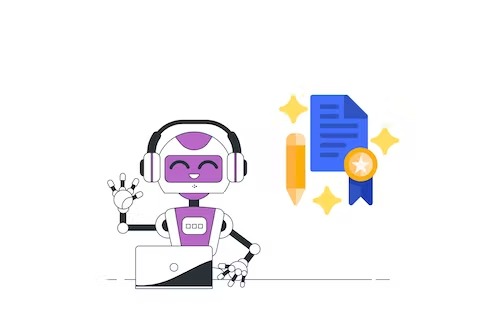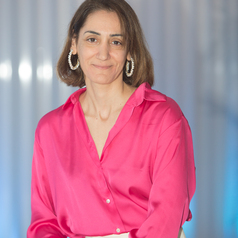Less than a week after Open AI released ChatGPT, CEO Sam Altman announced that the chatbot had already surpassed one million users. By January 13, 2023, the global Google search for the word “ChatGPT” had hit a popularity score of 92 and Microsoft has since invested $10 billion in OpenAI.
Now, the chatbot is at capacity and no longer available for use thanks to server saturation, but OpenAI has recently announced a $20 per month subscription service that it will be piloting with people off its waitlist.
As most of us are now aware, ChatGPT is a text-based artificial intelligence tool capable of natural language generation and human-like responses with a certain level of accuracy.
This new tool – and, importantly, conversations about the new tool – is taking the world by storm. Opinions abound.
Some people are ready to totally embrace it, citing its high efficiency in creating texts such as emails or press releases in terms of time, money, and resources. Using ChatGPT to generate a letter of acceptance (or rejection), for instance, can reduce the time it usually takes to do this job from 30 minutes down to five. That’s quite spectacular, particularly for those of us who find such tasks time-consuming and tedious. Yet, others see the beginning of the end of human uniqueness and originality in the way that the tool uses massive amounts of commonly existing data.
Misinformation is another shortcoming of ChatGPT because it pulls from trusted and non-trusted sources of data equally. On top of that, ChatGPT is unable to cite the references it uses in executing the requested tasks and sometimes (many times) it even makes up an entire response, albeit eloquently.
Enthusiasts and alarmists
This new technology has a direct impact on higher education – and it certainly has classrooms talking. Opinions around the use of this tool in academia are clearly divided between enthusiasts (particularly students) and alarmists (namely professors).
Professors fear (rightfully so) that the use of this tool will open doors to cheating and plagiarism, while students see it as the long-awaited technology that will help them with writing late assignments, executing complex coding exercises, and perhaps even acing exams. The whole academic body feels uncomfortable, and so do some students, it turns out.
All this activity and debate around the entrance (or not) of ChatGPT into academia shows that it is providing a shakeup that the industry has long needed, and perhaps even long craved. New technology, old problem, same debate.
Historically speaking, technology has always affected education in significant ways and always with a mix of supporters and opponents. In his book, Teaching in a Digital Age, A.W. Bates writes that “arguments about the role of technology in education go back at least 2,500 years.” Written communication is one of the greatest tools that made knowledge more accessible and allowed the worldwide expansion of education. In Europe specifically, this coincided with the invention of the printing press in the 15th century.
Ironically, Socrates, the great Greek philosopher, was not a strong supporter of written documents and did not believe writing to be an effective means of communicating knowledge. In the mid-1990s, Internet-based learning was made possible due to the development of web-based learning management systems, another technological breakthrough that made MOOCs possible, challenging the traditional educational model and causing debates that are still in existence today.
Could ChatGPT be the technological tool that will, finally, radically change higher education?
Challenges in higher education
Alongside student wellbeing and campus sustainability, digital transformation is one of the biggest challenges facing higher education – and with ChatGPT, the challenges are even bigger.
No doubt, there will be many who resist ChatGPT and much research and investigation spent on methods of not only detecting its use but preventing its entry into higher education. As if prevention in its entirety were possible.
Whether we embrace or resist ChatGPT, there is no denying that this new tool has exposed, once again, the fragility and vulnerability of our higher education systems. Mack Institute Co-Director Christian Terwiesch tested the ability of ChatGPT in a Wharton MBA program Operations Management course and found that the tech tool would have received a B to B- grade on the exam. A rather unsettling result. According to Terwiesch, this outcome has numerous implications for business school education, including the need to improve teaching creativity and productivity, and to change current exam policies and curricula.
Change of mindset
Isn’t it about time, anyway, that we revisit our curricula, evaluation criteria, and learning and teaching tools? Making room for this new technology might very well be the excuse we need, as Christian Terwiesch indicates. If our evaluation systems were reconsidered so that they are not based on endless assignments, multiple tests, and countless deliverables, then this would certainly make room within the curriculum and create time in the classroom (and out of it) for something new.
But the question becomes: room and time for what? This next step must be considered carefully, because what we have here is a golden opportunity if used wisely. Thus, we must not only ask what will happen to our coding and programming classes if we rethink our evaluation systems thanks to the entry of ChatGPT (in whatever form that takes), but also: what do we want to happen? And what about courses focused on writing skills and communication? Should they be removed entirely from our educational programs? Just to think about such a change makes one uneasy.
This is the type of conversation that has started thanks to ChatGPT. We are finally asking the big questions about higher education.
As Mollick points out, ChatGPT may very well be the harbinger of a new era, one of human-machine integration. If that’s the case, education is the logical – and unavoidable – starting point.
So, what if, instead of prohibiting the use of ChatGPT in essays, assignments, and exams, students were allowed – no, required – to use the digital tool, and then spend their time critically analysing its output, outlining the thought-process and pinpointing its strength and weaknesses? What if the true assignment is no longer in providing an answer to a question or a solution to a problem but in analysing how that answer is generated?
This change in mindset around assignments could help students develop their critical and analytical thinking.
We can either view ChatGPT as the ultimate blow to our educational systems or as the spark that will change education for the better. I think both humans and technology would provide the same answer to this question.
A version of this article was originally published by IE Insights, the thought leadership publication of IE University.



 Nvidia, ByteDance, and the U.S.-China AI Chip Standoff Over H200 Exports
Nvidia, ByteDance, and the U.S.-China AI Chip Standoff Over H200 Exports  Alphabet’s Massive AI Spending Surge Signals Confidence in Google’s Growth Engine
Alphabet’s Massive AI Spending Surge Signals Confidence in Google’s Growth Engine  Nvidia Nears $20 Billion OpenAI Investment as AI Funding Race Intensifies
Nvidia Nears $20 Billion OpenAI Investment as AI Funding Race Intensifies  Nvidia CEO Jensen Huang Says AI Investment Boom Is Just Beginning as NVDA Shares Surge
Nvidia CEO Jensen Huang Says AI Investment Boom Is Just Beginning as NVDA Shares Surge  SpaceX Seeks FCC Approval for Massive Solar-Powered Satellite Network to Support AI Data Centers
SpaceX Seeks FCC Approval for Massive Solar-Powered Satellite Network to Support AI Data Centers  Instagram Outage Disrupts Thousands of U.S. Users
Instagram Outage Disrupts Thousands of U.S. Users  Tencent Shares Slide After WeChat Restricts YuanBao AI Promotional Links
Tencent Shares Slide After WeChat Restricts YuanBao AI Promotional Links  Elon Musk’s SpaceX Acquires xAI in Historic Deal Uniting Space and Artificial Intelligence
Elon Musk’s SpaceX Acquires xAI in Historic Deal Uniting Space and Artificial Intelligence  OpenAI Expands Enterprise AI Strategy With Major Hiring Push Ahead of New Business Offering
OpenAI Expands Enterprise AI Strategy With Major Hiring Push Ahead of New Business Offering  Elon Musk’s Empire: SpaceX, Tesla, and xAI Merger Talks Spark Investor Debate
Elon Musk’s Empire: SpaceX, Tesla, and xAI Merger Talks Spark Investor Debate  SpaceX Prioritizes Moon Mission Before Mars as Starship Development Accelerates
SpaceX Prioritizes Moon Mission Before Mars as Starship Development Accelerates  Oracle Plans $45–$50 Billion Funding Push in 2026 to Expand Cloud and AI Infrastructure
Oracle Plans $45–$50 Billion Funding Push in 2026 to Expand Cloud and AI Infrastructure  Jensen Huang Urges Taiwan Suppliers to Boost AI Chip Production Amid Surging Demand
Jensen Huang Urges Taiwan Suppliers to Boost AI Chip Production Amid Surging Demand  Sony Q3 Profit Jumps on Gaming and Image Sensors, Full-Year Outlook Raised
Sony Q3 Profit Jumps on Gaming and Image Sensors, Full-Year Outlook Raised  Nintendo Shares Slide After Earnings Miss Raises Switch 2 Margin Concerns
Nintendo Shares Slide After Earnings Miss Raises Switch 2 Margin Concerns 
































